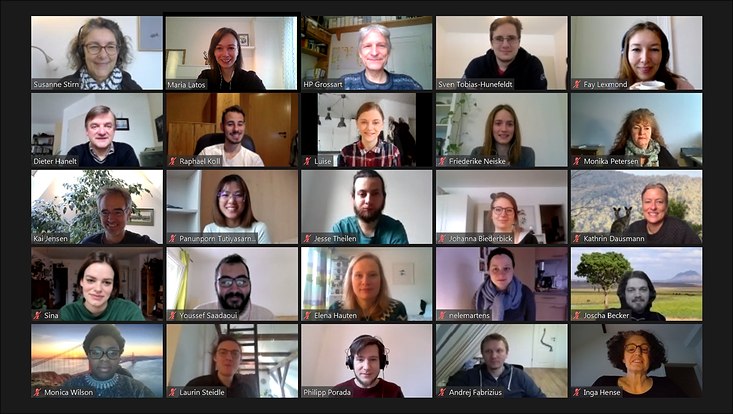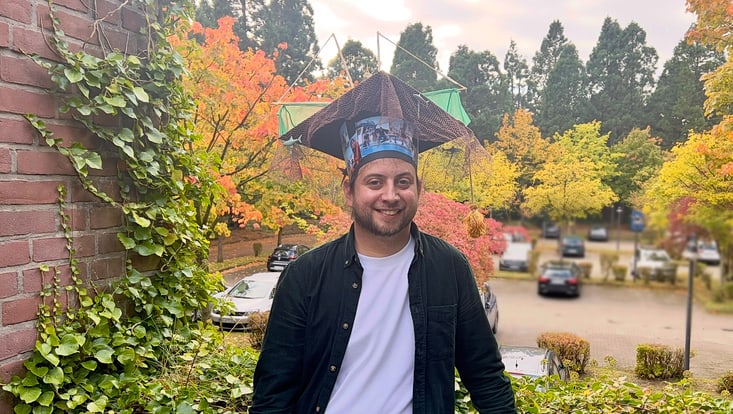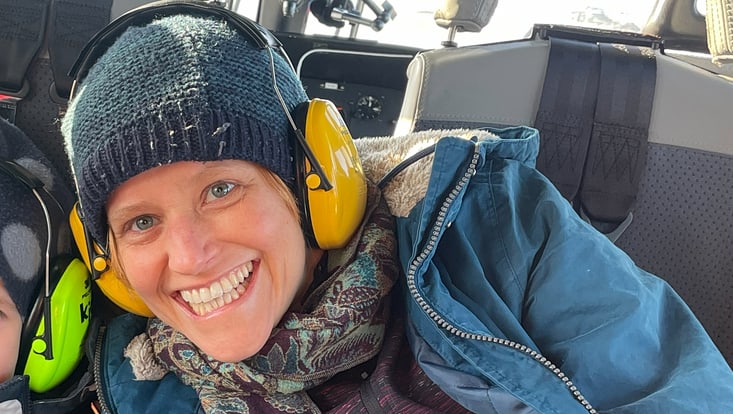Research Training Group 2530Virtual start to the doctorate
10 February 2021, by RTG2530

Photo: UHH/RTG2530
The introductory days for the first doctoral researchers of the Research Training Group 2530 took place last week. Due to the pandemic in a digital format, but not less personal.
A total of 15 doctoral researchers began their doctorates in the Research Training Group 2530 during the past few days and weeks. To ensure that they have a smooth start, a digital introduction was organized on 1st and 2nd February to exchange necessary information and to answer open questions regarding the doctorate in the Research Training Group. "On the one hand, our aim was to provide the doctoral researchers with important information, for example about the training programme and the process in the upcoming months," says Prof. Dr. Kai Jensen, spokesperson for the Research Training Group. "On the other hand, we wanted to bring both the doctoral researchers and the participating researchers into contact with each other to initiate exchange."
Video tours of the institutes
The doctoral researchers are already involved in their respective working groups, but due to the current pandemic restrictions, many have not yet been able to visit the institutes' buildings and laboratories. Therefore, the participating scientists presented the institutes of the Department of Biology and the Department of Earth System Sciences virtually: Prof. Dr. Philipp Porada and Prof. Dr. Dieter Hanelt took the participants on a video tour around the Institute of Plant Sciences and Microbiology, showing laboratories and algae collections. Prof. Dr. Elisa Schaum and Prof. Dr. Inga Hense challenged the PhD students in an interactive quiz about terrestrial and aquatic plants as well as phytoplankton. Prof. Dr. Lars Kutzbach and Prof. Jens Hartmann showed possibilities of using laboratory and field methods of geology and soil science in the Research Training Group.
"It was also a happy coincidence that Pat Megonigal, one of our three Mercator Fellows, gave a lecture on "Coastal Wetland Carbon Cycling in a Changing Climate" at the University of East Anglia on the same day, which we were able to attend," says Jensen. "This gave our new doctoral researchers a good insight into 30 years of research in coastal climate science."
Tour of the Elbe postponed
At the end, the social aspect was also part of the introductory days: In small groups, the participants solved an online escape game in which various puzzles had to be deciphered virtually in order to free a kidnapped scientist with a virus antidote. The joint excursion to the possible research sites at the Elbe, the tour of the individual institutes and a dinner that were planned for the introductory days will be made up for as soon as this is possible.


